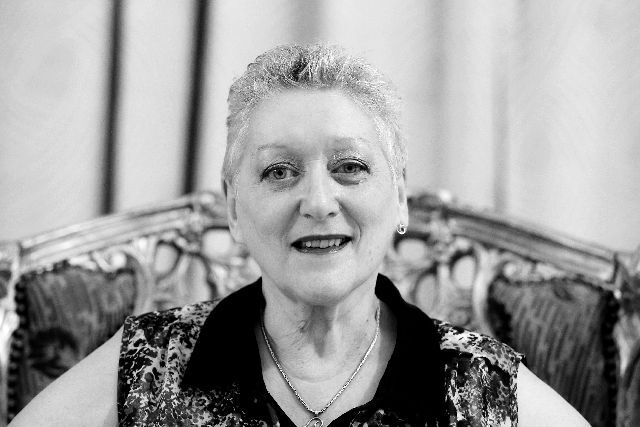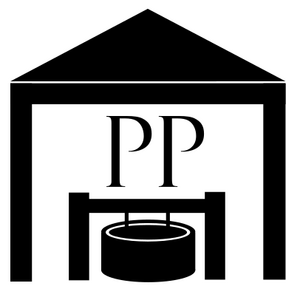
Agnes Meadows has toured nationally and internationally, giving readings, workshops, and residencies all over the world, most recently in Bangladesh at the Dhaka International Poetry Festival, where she received a Literary Award for her contribution and commitment to poetry. She was a Guest Poet at the Austin International Poetry Festival for ten consecutive years, twice winning awards for Outstanding Writing, and has read three times at the Babylon International Festival of Arts & Culture in Iraq. Of her six collections of poetry, three were published by Flipped Eye/Waterways. Her last collection was a dual English-Chinese collection—The Light On the Wall (Morgan’s Eye Press), from which she read at the Formosa International Poetry Festival in Taiwan in 2017.
In 2019 she was invited to be Guest Editor of the Atlanta Review Poetry Journal, one of the world’s foremost poetry magazines. This edition will be launched in Spring 2020, featuring the work of 48 poets from or living in Wales or Cornwall. Since 2004 Agnes has run Loose Muse Women’s Writers Night in London, with regular satellite events elsewhere in England, and has also advised Channel 4 TV on poetry. In October 2019, Palewell Press launched her seventh poetry collection - Back to Babylon.
You can contact Agnes on agnespoet@gmail.com.
Review by Juliette Foster
I once went through a phase when I couldn’t bring myself to read poetry, partly because some poems are maddeningly opaque but largely because of an inbuilt prejudice that started at school. In those days, poetry was about understanding the mechanics of iambic pentameters and writing well enough about them to pass an exam. I must have done something right as I sailed through with flying colours, although the experience was enough to put me off poetry for much of my adult life.
It took a while for me to realise that there’s more to poetry than blank verse, iambic, trochaic and dactylic pentameters, in much the same way that not every branch of science is about brain busting equations. Poetry is a journey of observation, soul baring, the pleasure or pain of a captured moment, the connection to an emotional stream. British poet Agnes Meadows embodies those qualities and in Back to Babylon, her seventh poetry collection, she deploys them to haunting effect.
In 2012, 2014 and 2016 Meadows visited Iraq for the Babylon International Festival of Arts and Culture. What she found was a country scarred by the devastation of war, haunted by the appalling crimes of its former dictator Saddam Hussein yet proud of its rich ancient history. The poems, and their accompanying blog, are a recognition of this and an acknowledgment of the hardship of the Iraqi people. The suffering they have endured over the years is beyond tragic and Meadows brings it into focus with blistering sharpness. In the poem Between One Breath and the Next, the opening line has the force of a gut punch:
“How would you feel, English, if you sent your son
to buy bread and he didn’t come back?”
What follows from the question is the outline of a nightmare that few of us will ever experience. The frantic search of the streets “calling his name, in case he was laying somewhere, misplaced, waiting for rescue”, the “dreadful knocking of tears that threatened to scythe you open”, the “helicopter beat” of a pounding heart and the loss of hope as the hours slip into darkness. It is a litany of sadness from which there is no happy ending. As readers we already know the outcome which is why our default position is to turn the page, close the book or look the other way. An instinctive reaction, or wilful blindness? For Meadows there are no options. She doesn’t resort to finger wagging polemics to explain why we need to take notice. Rhetorical questions wrapped in powerful imagery are her weapons of choice, and the combination is extraordinarily effective. We are dragged out of our comfort zone, forced to imagine the “blood on the ground, each droplet no longer brilliant”, the raw fear from “the clamour of gunfire in the distance” and how the pain of losing a child is “the ache in your breast an echo of birth pangs”. It is graphic, unsettling writing that sets the tone for some of the collection’s later offerings. For me, Light Within Light is one of the most poignant and disturbing of the poems. An elderly man, “a gardener in the old days”, is literally driven mad by a long futile search for his young daughter:
“His own orchard of hope; that whenever he said her name, it was as if
The Grace of God had blessed his lips, his precious flower.”
He wanders the streets asking strangers if they have seen her, blinkered to the reality that she is lost to him forever. Trauma is cruel, no more so than when a desperate father looks to the earth for the solace that eludes him. Every day he fills his mouth “with dirt, oil black and gritty”, as if somewhere amidst “the roots of trees, with earthworms, centipedes, or the broken things”, he will find his daughter’s spirit. It is a heart-breaking piece of writing that lingers in the memory long after the final verse has been read. His madness is pitiful, and Meadows avoids the trap of framing it as a symbol of a broken-down nation. Iraq will never shed its ghosts, but it does have its history and a possible future to look forward to.
There’s so much about this collection that I enjoyed. Meadows is an excellent writer who pulls off the trick of making the reader feel involved. It’s not just her Babylon journey but ours too, which is why it’s difficult to run away when the going is emotionally tough. She doesn’t hide the brutality of the past or tiptoe around its violent consequences. The suffering of the Iraqi people is handled with a compassion that brings dignity to both the victims and survivors. Would the result have been the same if politics had been worked into the poetic mix? I’m not sure although I’m glad she wasn’t side-tracked into geo-political referencing.
This is a collection that relies on subtlety and intelligence to challenge our perception of a country and its people. Yes, there is violence and everyday living is tough, but the Iraq which emerges from the pages is a land of classical history, with a burgeoning arts scene, generous, warm hearted people and vibrant splashes of colour. Soldiers with Kalashnikovs are as common as the marigolds “cascading along the cracked paving stones and gutters”, or the red azaleas at the dictator’s palace where walls are “graffitied with the names of lovers so young they had never known heart-break”. The past may have thrown a heavy shadow, but Iraq does have potential and Meadows has written a splendidly crafted work that rings with cautious hope.
Contact Information
Camilla Reeve, Senior Editor
© Copyright Palewell Press Ltd 2024
Registered in England. Number 10473109. Registered Office 89 Sheen Lane, London SW14 8AE
